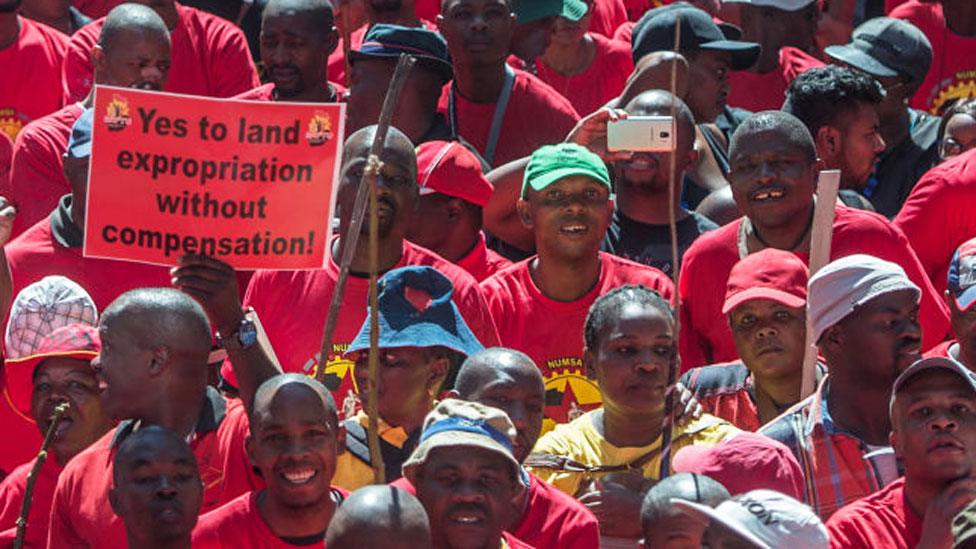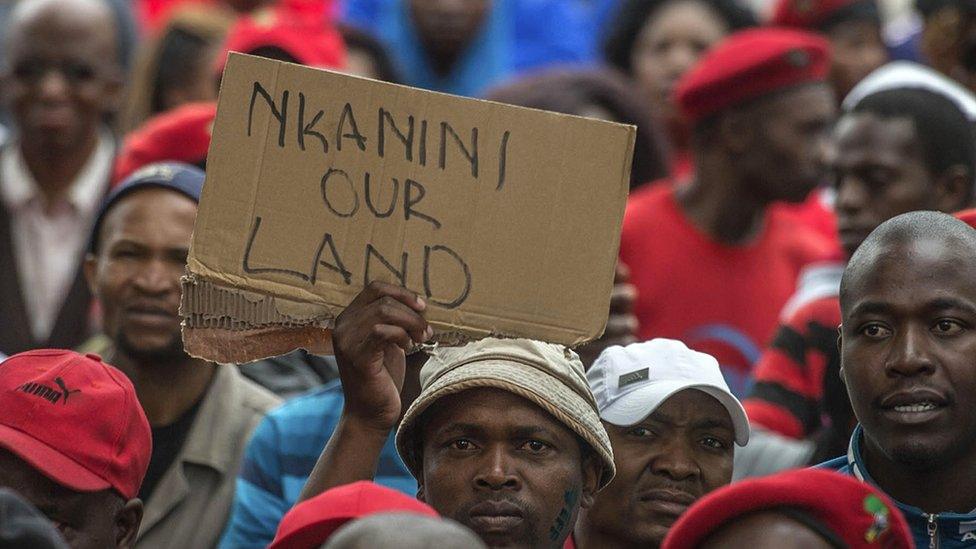South Africa presidential panel backs limited land seizures
- Published

The radical EFF opposition party has made land expropriation without compensation a key national issue
A presidential panel in South Africa has proposed expropriation of land without compensation, but in limited circumstances.
Land held purely for speculative purposes or occupied by tenants should be given away, it advises.
White people, who make up just 9% of the population, own 72% of the farmland that is held by individuals.
President Cyril Ramaphosa backs land expropriation, which is popular with the black majority.
The governing African National Congress (ANC) has repeatedly pledged to accelerate land transfers to the black majority since taking office in 1994, after white-minority rule ended, but progress has been slow.
Those opposed to land expropriation point to Zimbabwe where a similar policy by former President Robert Mugabe wrecked the economy and scared away investors.
President Ramaphosa set up the team of experts last year as the ANC was coming under pressure from opposition parties, especially from the Economic Freedom Fighters (EFF).
The panel proposed that the government expropriate
land held purely for speculative purposes
land already occupied and used by tenants and former tenants
land that has been abandoned
inner city buildings with absentee landlords.
It said those who had bought property since the end of apartheid should be treated differently to those who had inherited land that was held under the apartheid system.
The main opposition Democratic Alliance party rejected the report's recommendations, saying land expropriation without compensation would "further batter our ailing economy".
Parliament is due to debate proposed changes to the land expropriation bill in October.

South Africa's land problem

The Natives Land Act of 1913 restricted black people from buying or renting land in "white South Africa", leading to the forced removals of black people
After the end of apartheid in 1994, the ANC government said it wanted to return 30% of this land to its previous owners by 2014
It is estimated that 10% of commercial farmland has been redistributed.

- Published30 May 2018

- Published17 June 2024
